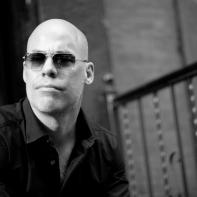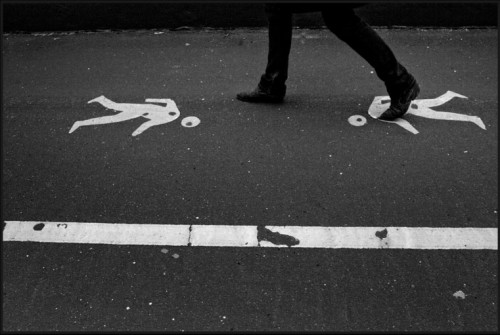
Year One
At age thirty-three, I forged three letters of recommendation, filled out an application, and applied to the Masters program in Creative Writing at City College.
I got in. Quitting my six-figure job in advertising, I focused my full energies on becoming a writer.
My first year in school, I wrote a short story, then another. I wrote and wrote and ended up winning three contests—contest that paid cash—sponsored by school. This is easy, I thought. I can make a living as a writer.
I didn’t take into account that the contests were only open to students of the program, a very small pool of people. I didn’t take into account that hardly anyone else had submitted work.
TALLY
Career earnings at the end of 2002: $1,800
*
Year Two
At the start of my second year in the program, I wrote a story about two young Dominican girls who’d been abandoned by their mother. I workshopped it. It was eviscerated. The only thing everyone could agreed on was that the piece sucked.
I liked the story. I send it out to literary magazine.
Twelve rejections later, the Alaska Quarter Review picked it up. It was my first published story. No money, only contributor copies. But it didn’t matter. I was thrilled. Finally! I thought. I’m a writer.
The piece went on to win an O. Henry Prize and be included by in the Best American Nonrequired Reading anthology. Both paid in cash and contributor copies.
Two years into the game and I was on the cusp of blowing up. This is easy, I thought.
TALLY
Career earnings end of 2003: $2,400 (increase of 33%); 27 contributor copies
*
Year Three
I graduated. I never got around to picking up my diploma. It didn’t matter. I was a writer.
My thesis, a rickety, sliver-of- a-novel that made sense in my mind but not on page, was named one of twelve finalist for the James Jones First Novel Fellowship. This is it, I thought. $5000 prize money and a red carpet entrance into the big leagues.
I didn’t win.
I didn’t place any short stories that year.
TALLY
Career earnings end of 2004: $2,400 (no change); 27 contributor copies (no change)
*
Year Four
Five stories placed in one year. I should have been exuberant. But the joy of getting a story published in a literary magazine is a damp match, flaming briefing before hissing dead. I expected that something magical would have happened by then, that my life would blossom, change. I’d be successful. I’d be the person I aspired to.
It didn’t work that way. At least for me.
TALLY
Career earnings end of 2005: $2,400 (no change); 42 contributor copies (increase of 56%)
*
Year Five
I wrote a lot. I wrote more. I got tons of rejections. This isn’t so easy, I thought.
TALLY
Career earnings end of 2006: $2,400 (no change); 42 contributor copies (no change)
*
Year Six
Two years of writing, two fired agents and 40 plus rejection—I finally sold my novel. Not the one I’d written as my thesis, but another, my second. East Fifth Bliss. The publisher was a small mom-and-pop set-up in California, two steps removed from vanity POD. I got a hundred dollar advance, an earful of naive advice from the publisher, and a nagging sense that I’d just bush-leagued my writing career.
But I had a novel.
TALLY
Career earnings end of 2007: $2,500 (increase of 4%); 42 contributor copies (no change)
*
Year Seven
The novel came out in February 2007. It hit the market like a concrete birdbath launched into the East River—a small splash, a few ripples, then nothing. Forgotten.
I wrote more.
TALLY
Career earnings end of 2007: $2,500 (no change); 62 contributor copies (increase of 48%)
*
Year Eight/Year Nine
I wrote another novel. Shelved it. I stalled out at 200 pages on the next, then stalled out at 140 on the one after. Then I wrote After Lilly. I got my third agent. She’d just hooked a half million dollar advance on a novel by a new writer. Here we go! I thought.
Publishers called. My agent talked. Numbers were tossed around. Then the publishers stopped calling.
My friend and I had adapted East Fifth Bliss into a screenplay. We had interest from production companies, investors. Named actors read the script.
When I told my agent that the movie was going to happen, she said, “Movies don’t really sell books.”
I let her go.
TALLY
Career earnings end of 2009: $2,500 (no change); 62 contributor copies (no change)
*
Year Ten
Big year. I published three stories. My film, entitled The Trouble with Bliss, got made. It stars Michael C. Hall, Lucy Liu, and Peter Fonda. I got a chunk of cash plus back-end points for my efforts. My story collection Girls in Trouble won the Grace Paley Prize. I got a fistful of cash and publication. I sold my new novel Where Night Stops and the reprint rights and audio book rights for East Fifth Bliss.
TALLY
Career earnings end of 2011: $21,400 (increase of 756%); 67 contributor copies (increase of 8%)
*
Now
Hollywood hasn’t called. The publishing house that was to put out Where Night Stops and the East Fifth Bliss reprint folded. I kept the advance. The audio book sales were tepid. The movie was met with brutal reviews, though it did well in Europe and Asia. It may pay-out eventually.
When I first started writing, my desire was for people to read my work. Now it’s for people to buy my work. If they read it, that’s a bonus.
I have a new agent, my fifth. I’m on to the next thing, the next story or novel or screenplay that will—finally—push me over.
The writing game isn’t easy. At least not for me.
TALLY
Annual earning: $2,140; 6.7 contributor copies
 There’s good reason the major of writing never sees the light of day. Most of it’s painfully bad—or at least that’s true of mine. Culling through a decade-plus of writing was crushing. Like a brutal episode of This is Your Life, each page drove me back to the time I’d written it. The hopes and dreams I’d fostered then were eclipsed by the stark reality of now. So much time spent on failure work.
There’s good reason the major of writing never sees the light of day. Most of it’s painfully bad—or at least that’s true of mine. Culling through a decade-plus of writing was crushing. Like a brutal episode of This is Your Life, each page drove me back to the time I’d written it. The hopes and dreams I’d fostered then were eclipsed by the stark reality of now. So much time spent on failure work.